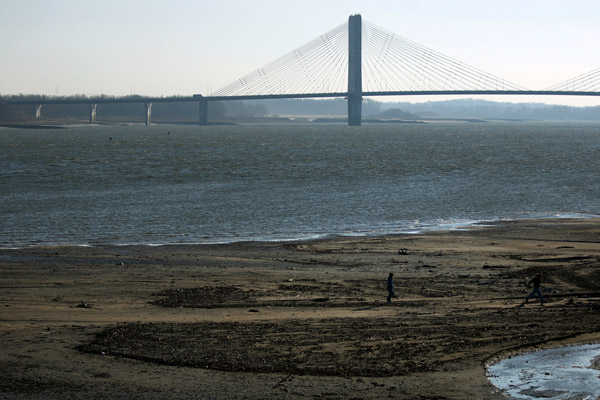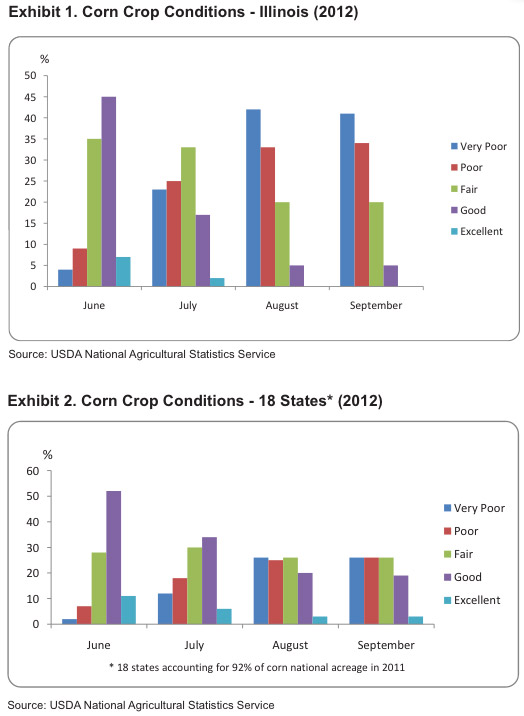
E. Jason Wambsgans/Chicago Tribune
Low water levels on the Mississippi River at Cape Girardeau, Mo. Tuesday, Dec. 18, 2012.
This year's drought made headlines, but the sort of slow-moving headlines a drought creates. But the story's not over, even as our wet March runs well ahead of pace and conditions in northern Illinois are forecast to improve. Its effects will continue to ripple through the economy (PDF):
The 2012 summer drought could become the second most expensive weather event ever, behind only Hurricane Katrina. It caused a general decline in farm incomes and will have an inflationary effect on grocery prices for the next few years. U.S. food prices were expected to rise 3.5 percent in 2012 (final data pending). A 3 to 4 percent increase is projected for 2013.
(That's dependent on how its costs shake out against Hurricane Sandy.)
And Illinois got hit harder than its neighbors when it comes to the state's main crop:

A lot of that corn—field corn, not sweet corn—gets fed to animals you eat. Which means less of them to go around:
In the U.S. corn and soybeans are mainly consumed by livestock as well as the processed foods and biofuels industries. Because feed costs have forced livestock farmers to adjust, there will be less beef, pork, chicken and turkey late in 2013 and then into 2014, which means higher prices for those items.
And if state rep Luis Arroyo gets his way, lion meat will cease to be an alternative. Not that it seems worth it: "The lion meat doesn't have the aggressive flavor you might expect. Instead it takes on the taste of its sauce…."



